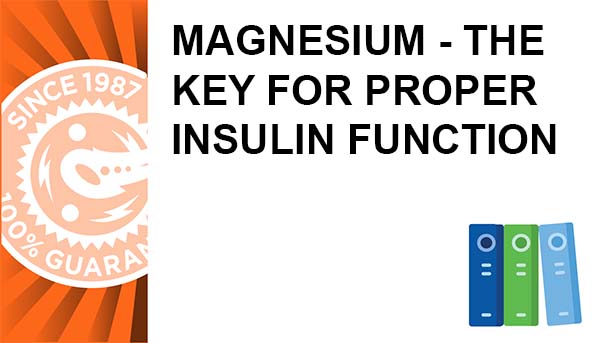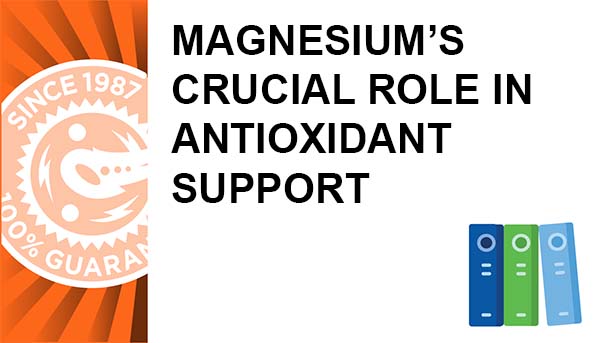
HIGHER LEVELS OF MAGNESIUM ASSOCIATED WITH LOWER ALZHEIMER DISEASE RISK
BY STEVE BORN
I realize I must sound like a broken record, but seriously, is there anything in human health that magnesium doesn’t have its hand in? The latest research reveals another profound benefit of this allimportant mineral—a strong potential for protection against Alzheimer disease.
The goal of the study was explained by Dr. Ke Du and associates:
Alzheimer’ s disease (AD) remains a medical and social challenge worldwide. Magnesium (Mg) is one of the most frequently evaluated essential minerals with diverse biological functions in human body. However, the association between circulating Mg levels and AD remains controversial.
Magnesium plays a critical role in nerve transmission and neuromuscular conduction in nervous system and has a protective effect against excitotoxicity inducing neuronal death. The aim of the present study was to gain additional insights into maintaining an adequate nutritional state for Alzheimer disease prevention or treatment.
21 studies published from 1991 to 2021 that involved 2,113 men and women, and that reported the relationship between serum, plasma or cerebrospinal fluid levels of magnesium and the risk of Alzheimer disease were reviewed.
18 of those studies compared serum or plasma magnesium levels in participants with Alzheimer disease with healthy participants. Those with Alzheimer disease were found to have lower magnesium levels of the mineral, regardless of age or sex.
The other 3 studies showed lower levels of magnesium in cerebrospinal fluid in Alzheimer disease patients as compared to healthy subjects.
CONCLUSIONS:
Analyzing all 21 studies revealed a significantly decreased level of magnesium in Alzheimer disease patients in comparison with healthy controls.
The researchers summarized: “Our analysis concluded that circulating magnesium levels in Alzheimer disease patients were significantly lower than those in healthy controls, providing more evidence that magnesium supplementation or magnesium rich diets possibly exerted promising preventive or therapeutic strategies for treating Alzheimer disease patients with a poorer magnesium status.”
HOW MUCH MAGNESIUM DO YOU NEED?
The government-set Recommended Daily Allowance (RDA) for magnesium is 420 mg a day for males and 320 mg a day for females. A more appropriate amount to aim for, however, is the Optimal Daily Intake (ODI) standard of 500- 750 mg of magnesium. Dr. Shari Lieberman, who developed the ODIs, states: “In order to attain a state of optimum health and disease prevention, we must take into our bodies’ optimum (not minimum) amounts of vitamins and minerals.
Magnesium expert Mildred Seelig suggests even more precise dosages of 2.7 mg of magnesium per pound of body weight, with those under severe chronic stress or engaged in strenuous work/athletic training needing a dose of up to 4.5 mg of magnesium per pound of body weight.
EXAMPLES:
- Normal daily dose: 160-pound person x 2.7 mg = 432 mg of magnesium daily
- Moderate stress/medium training volume dose: 160-pound person x 3.3 mg = 528 mg of magnesium daily
- Severe chronic stress/highest training volume period dose: 160-pound person x 4.5 mg = 720 mg of magnesium daily
The Essential Mg formula (100 mg elemental magnesium per capsule)
Magnesium bisglycinate is magnesium chelated (bonded) to the amino acid glycine and is touted for its high absorption rates. It’s also the form of magnesium considered to have the least amount of potential to cause a laxative effect, common with forms such as oxide.
Magnesium succinate is magnesium chelated to succinic acid. This compound yields one the highest amounts of elemental magnesium while providing the body with a Krebs cycle intermediate that not only plays a role in energy production, but is also involved in the rebuilding of muscle fiber and nerve endings.
Magnesium citrate is magnesium chelated to citric acid, a key Krebs cycle intermediate noted for its ability to help alleviate fatigue as well as playing a role in relieving symptoms of asthma and hypertension.
Magnesium malate is magnesium chelated to malic acid and it’s the most common form of magnesium used for alleviating fibromyalgia. Malic acid (malate) is a Krebs cycle intermediate, touted for its energy enhancing, fatigue-alleviating effects. Malic acid also supports enhanced exercise performance by counteracting the buildup of lactic acid.
Magnesium taurinate (aka magnesium taurate) is magnesium bonded to the amino acid taurine. Because both magnesium and taurine are associated with cardiovascular health, magnesium taurate is often referred to as the “heart health” form. Among its many benefits, taurine assists in regulating heartbeat and muscle contractions.









